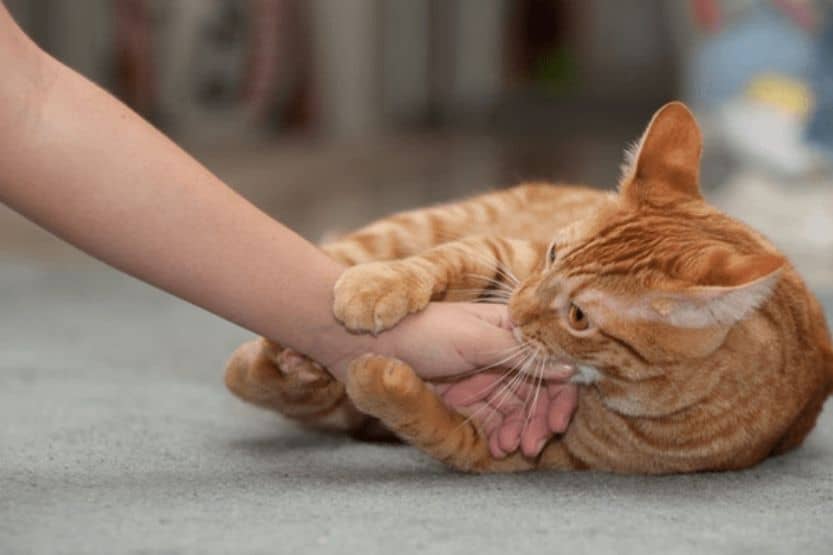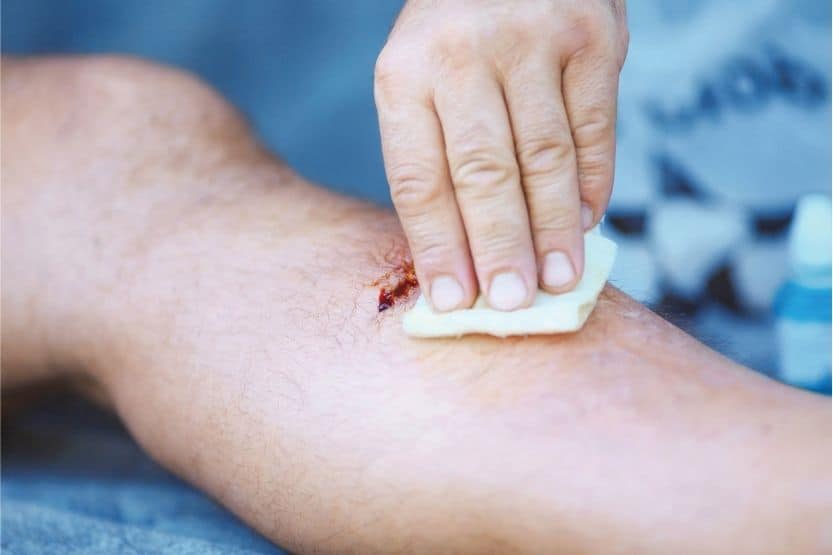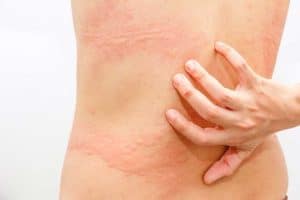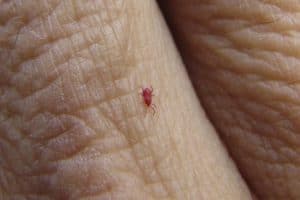It’s common for skin to become itchy after a cat scratches it. Sometimes, the skin will even swell up after being scratched by a kitty. Why do cat scratches itch?
Cat scratches itch because of a bacterium in the cat’s saliva that causes itching, swelling, and redness at the bite or scratch site. The itching can be accompanied by flu-like symptoms, such as fever, headache, and muscle weakness.
This infection is called the Cat Scratch Disease (CSD) and often happens to people who have a cat allergy.
That’s why you have to wash the cat’s scratch or bite immediately and disinfect the area. Sometimes, even individuals without cat allergies can suffer from CSD.
If a person you know has a severe allergic reaction to the cat’s scratch or bite, you will have to rush the patient to the nearest health facility. Anaphylactic shocks due to allergies are life-threatening.
Read on to learn more about why scratches from cats itch and how to treat and prevent this skin issue.
Why Do Cat Scratches Itch and Swell?

Cat scratches itch due to a bacterium present in the cat’s saliva. This bacterium causes swelling, redness, and itching in the area of the bite or scratch.
These symptoms can also come with flu-like symptoms, such as headache, fever, and muscle weakness. This is the Cat Scratch Disease (CSD), which typically occurs with people allergic to cats.
Allergens coming from the cat’s urine, fur, saliva, and dander can cause cat allergy. The said allergens can enter your body through your lungs and your mouth. Not all people are allergic to cats.
Nevertheless, if you’re one of those allergic to cats, you can experience the following symptoms:
- Runny nose
- Sneezing
- Headache
- Itching
- Swelling
- Skin rashes
- Redness
- Asthma
Those who have an allergy to cats are usually hypersensitive to cat scratches or bites. They could experience swelling, fever, exhaustion, headache, and poor appetite as well. The cat scratch can also lead to small, itchy bumps.
Their lymph nodes near the scratch or bite site may also swell and become tender with accompanying pain. If this happens, you have to go to the nearest hospital.
However, no matter if you’re allergic or not, you still have to follow the steps below to ensure that you stay healthy.
Why do cat scratches itch and swell? Both itchiness and swelling upon being scratched by your cat are caused by the bacterium present in your cat’s saliva.
Possible Treatments for an Itchy Cat Scratch
Itching is one of the symptoms of cat allergy. Veterinarians may also prescribe the following:
1. Antihistamines
Diphenhydramine (Tylenol Allergy, Benadryl), Cetirizine (Zyrtec), and Loratadine (Alavert, Claritin) – for itching, rashes, and to reduce swelling.
2. Cromolyn Sodium
Reduces allergic symptoms by minimizing the immune system’s response to the allergy.
3. Nasal Sprays (Fluticasone and Mometasone)
This is for a runny or blocked nose that often accompanies wheezing and cough.
4. Antibiotics
This medication will ensure that scratch or bite does not get infected with microbes. Examples are Amoxicillin, Prostaphlin A, and Cloxacillin.
5. Rabies Vaccine
If an unvaccinated cat bites or scratches you, the doctor may recommend a rabies vaccination and treatment.
Cat Allergy Management
If you have a cat allergy but still want to give in to your love for cats, you can manage your cat allergy by observing these management practices:
1. Use reliable High-Efficiency Particulate Air (HEPA) cleaners to eliminate cat furs and other related substances from your house.
2. Provide a specific area for your cat and keep it away from your bedroom and living room. Train your pet until it knows where to stay. [1]
3. Avoid hugging, kissing, or petting your cat. However, if you do, make sure you wash your hands thoroughly with soap and water. Kissing your cat in the mouth is a big no-no unless you cleanse your mouth with an efficient mouthwash afterward.
Nonetheless, your cat is not a person you can kiss whenever you want to. Remember that it plays with bugs, such as cockroaches, and yes – mice.
What to Do When a Cat Scratches or Bites You?
1. Thoroughly Wash the Area Immediately
Whether the area is itchy or not, you have to wash it thoroughly with soap and water. You can do this three times with a copious amount of running water until you’re sure you have gotten rid of the cat’s saliva.
If the cat has inflicted a wound, apply pressure to allow blood to ooze outside. This will flush out any bacterium from the interior area. Then wash again with soap and water. Don’t wait for the site to dry, as the bacterium could infiltrate the skin quickly.
2. Apply Antiseptic or Disinfectant
Why are cat scratches itchy? As mentioned earlier, cat scratches are itchy due to the presence of saliva’s bacterium.
To clean the scratch, after washing thoroughly, you can apply antiseptic or disinfectant at the site of a scratch or bite. You can use iodine or betadine.
You may also want to clean the itchy cat scratch with hydrogen peroxide first before applying betadine. You have to perform this step to get rid of the blood, dirt, and other foreign substances.

3. If You Notice Signs of Allergic Reactions, Consult a Doctor
If the allergic reaction is severe, you have to rush the patient to the nearest health facility for treatment. Anaphylactic reactions could result in severe consequences, such as coma or death.
4. Injection of Anti-Tetanus Shots
Most doctors would prescribe an anti-tetanus shot to prevent you from contracting the tetanus microbe. In some instances, the doctor may also recommend an anti-rabies shot. This order would depend on the evaluation of your wound or scratch.
5. Observe the Cat If Not Rabies-Vaccinated
Ensure that the cat is safe. Place the cat immediately in a secure enclosure and observe any untoward reactions. You have to feed the cat well so that it doesn’t get sick from other illnesses. If it does, even with proper treatment, you have to go back to your doctor for appropriate management.
Rabies can come from a rabies-infected cat’s scratch or bite. You should implement this step if your cat has not been rabies-vaccinated. Make sure to observe the cat for at least 10 days straight and report to your doctor if the cat dies or gets sick within that period.
If the cat gets sick despite you taking care of him properly, it indicates that it has rabies and has infected you. The rabies virus may stay incubated for days, weeks, months, or years. Hence, be alert, as the survival rate for rabies is low.
In this instance, the doctor would prescribe the first dose of rabies immune globulin and a series of rabies vaccinations to counter the virus’s action. [2]
6. If the Scratch or Bite Doesn’t Heal after a Few Days, Go Back to Your Doctor
You have to immediately consult your doctor if the bite or scratch does not heal after two days or when you develop a fever. The site may be infected with more microbes and could worsen if left untreated.
Why do cat scratches itch even when healing? You may also experience itching even when they scratch or bite is healing because the skin’s nerve endings are stimulated. This stimulus is fed to the brain, and the brain will interpret the sensation as itchiness.
List of Hypoallergenic Cat Breeds Best for People with Cat Allergies
Scientifically there are no hypoallergenic cat breeds. However, some pet owners’ unverified reports suggest that these are cat breeds for hypersensitive people.
Those with cat allergies can acquire them as pets as they are hypoallergenic:
- Russian Blue
- Balinese
- Hairless Sphinx
- Oriental Shorthair
- Siberian
- Cornish Rex
- Devon Rex
- Bengal
Why do cat scratches itch? A bacterium in the cat’s saliva causes itching when your cat scratches you. Scratches and bites can also cause itching, swelling, redness, and itchy bumps.
This might come with flu-like symptoms, such as muscle pain, fever, and headache. This condition is called catscratch disease and often occurs in people with cat allergies.
Next, let’s now proceed to some tips to prevent cat scratches and bites.
Tips on Preventing Itchy Cat Scratches and Bites
1. Trim Your Cat’s Nails Regularly
You can use a nail clipper to trim your cat’s nails. There are also cat clippers for cats only. Cats don’t enjoy this procedure, so you should request someone to help you hold the paws.
The recommended interval for clipping your cat’s claws is every 10 to 14 days. If you have difficulty in doing this task, you can bring your pet to a cat groomer.
The National Cat Groomers of America has recommended that cats get a bath and blown dry every four to six weeks. Cats don’t enjoy bathing, so you need to consider this when bathing them. You can always take your cat to the groomer if you find this chore a challenge.
2. Provide a Scratching Post for Your Cat
You could provide a scratching post for your cat to reduce its need to scratch anywhere. You may not need to clip its claws. This method is applicable only when the cat doesn’t go outside.
But if it does, you will have to follow the 10 to 14-day interval of nail clipping. The best method is still to trim your cat’s nails regularly despite having provided a scratching post.
3. Train Your Cat Not to ‘Play’ with Any Part of Your Body
As early as possible, train your cat not to play with your fingers, feet, or any part of your body. It’s safe when they are still kittens, but once they grow those claws, you can get hurt while playing with them.
So, redirect their attention and train them early on to play with their cat toys instead of your body parts.
If your pet starts playing with your fingers or feet, say a firm “No!’ and gently push him away. Be consistent, and your pet will understand that you mean business.
Of course, you can always cuddle and hug your pet demonstrating that you care during proper occasions. However, people with cat allergies should avoid cuddling and petting their cats.
4. Avoid Over-Petting Your Cat
Over petting, a cat can lead to scratches or bites. Know your cat, so you can stop petting when your pet starts to show irritability.
The cat’s ears would usually pull back, and its eyes would grow narrow when it has had enough. You may pet your cat, but know when to stop by observing its behavior.
If you don’t observe this process, your cat may turn aggressive and bite or scratch you.
5. Consult a Veterinarian If Biting and Scratching Becomes Constant
If your cat frequently gets aggressive, you should consult a veterinarian as an illness could be the cause. This step is most especially applicable when your cat was previously docile.
Certain diseases, such as hyperthyroidism (elevated thyroid hormones), could cause such occurrences. Your pet may also be suffering from undetected wounds or mites or bugs’ infestation. Ensure that your pet gets a complete checkup and treatment.

Hyperesthesia may also be the cause of your cat’s aggression. This is a rare condition that could first show in one-year-old cats, wherein they demonstrate repetitive grooming, self-mutilation, and aggressiveness.
Cat Breeds Prone to Hyperesthesia
These cat breeds are more prone to hyperesthesia, especially when they are one-year-olds:
- Burmese cats
- Abyssinian cats
- Siamese Cats
Experts assume that stress or neurological disorders could cause aggressive behavior, especially if seizures accompany the attacks. The doctor will treat the underlying cause of the cat’s symptoms with the appropriate medications and management.
6. Enjoy and Relax While Taking Care of Your Cat
Cats can feel your stress, which could exert undue stress on them as well. Stress can increase the risk of aggression in your cat. As previously mentioned, one of the causes of scratching and biting is stress.
So, relax and enjoy your pet, as you could transmit your peaceful or stressful state of mind to your cat.
Learn your cat’s moods and know when to reprimand it and when to show approval or affection. If you’re stressed from taking care of your cat, you should let it go. Taking care of a pet should be fun and rewarding.
Conclusion – Why Do Cat Scratches Itch?
Cat scratches itch due to the bacterium present in its saliva. This microbe causes itching, swelling, and redness at the site of the bite or scratch.
Flu-like symptoms may accompany the itching, such as headache, fever, and muscle weakness. This infection is called the Cat Scratch Disease (CSD) and occurs in people allergic to cats.
Thus, if you’re allergic to cats, you need to protect yourself by adequately managing your pet. You can refer to the tips mentioned above on dealing with cat scratches itch.
The best solution is to choose another type of pet, such as a dog, to prevent your allergy from occurring. But if you insist on owning a cat, you have to select one of the hypoallergenic breeds and observe the precautions to minimize the symptoms.
If the symptoms are severe, you have to let go of your cat, though, since your health should still be your utmost priority.



